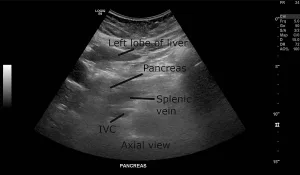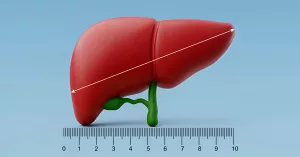Although cannabis tends to reduce the pace of digestive transit, studies indicate it may still serve as an effective option for treating constipation.
Cannabis — often called “marijuana” — comes from the Cannabis sativa plant. It belongs to a class of compounds known as cannabinoids, which interact with cannabinoid receptors throughout the body, including those located in the gastrointestinal tract.
While many people consume cannabis for recreation, its medicinal applications are expanding. Emerging evidence suggests cannabis can be useful for conditions like asthma and glaucoma. It also exhibits properties such as:
- antispasmodic effects — reducing muscle spasms via central nervous system activity
- appetite-stimulating effects — increasing hunger
Beyond these areas, cannabis may have therapeutic potential for constipation, even though its use is known to slow transit through large portions of the GI tract.

Cannabis versus marijuana
In this article we use the term “cannabis” rather than “marijuana.”
We avoid “marijuana” because of its racist origins and associations. The term gained traction in the U.S. during cannabis prohibition, leveraging xenophobic sentiments toward Mexican immigrants at the time.
How does cannabis influence constipation?
Cannabis is known to slow gastric motility — the rate at which food moves through the digestive system and is eliminated.
Reduced gastric motility can contribute to infrequent or hard-to-pass stools. So it might seem intuitive that cannabis would promote constipation.
However, that conclusion isn’t so straightforward.
A 2019 study reported that recent cannabis users had about a 30% lower likelihood of reporting constipation compared with people who never used cannabis or were former users.
The reasons cannabis might reduce constipation are not fully understood. The study’s authors propose several hypotheses to explain this apparent contradiction involving lesser-known constituents of cannabis.
For instance, minor and under-researched active compounds in cannabis could enhance colonic transit, counterbalancing the anti-motility actions of well-studied cannabinoids like tetrahydrocannabinol (THC).
It’s also plausible that the many other active molecules in cannabis act on non-cannabinoid targets to promote motility — mechanisms that remain to be discovered.
Despite these observations, cannabis is not considered a first-line therapy for constipation. It remains an active topic of research with both potential perks and risks for digestive health.

Are there digestive benefits to cannabis?
Among other effects, cannabis can reduce pain and inflammation within the digestive tract.
Clinically, cannabis has been used to help certain gastrointestinal conditions, such as inflammatory bowel disease, and it’s occasionally applied to relieve diarrhea, nausea, vomiting, or abdominal discomfort.
Can cannabis cause digestive problems?
Long-term or heavy cannabis use can negatively affect digestive health.
Cannabinoid hyperemesis syndrome (CHS) is a paradoxical condition linked to cannabis. It presents with severe vomiting, nausea, and abdominal pain following cannabis use — symptoms that cannabis is sometimes used to alleviate.
CHS is uncommon. According to research, chronic overstimulation of cannabinoid receptors may disrupt the body’s regulation of nausea and vomiting, leading to CHS.
Cannabis for gut health — pros and cons
The overall impact of cannabis on gut health remains unresolved.
A 2017 review finds literature that supports cannabis use in some digestive disorders, though clinical effectiveness is not yet clear-cut.
A 2016 review urges more research into cannabis and GI health, noting some evidence that cannabis may simply mask symptoms of active disease rather than addressing underlying pathology.
How does cannabis act on the gut?
Cannabis stimulates cannabinoid receptors in the gastrointestinal tract. These receptors are components of the endocannabinoid system and influence many physiological processes.
Research suggests cannabis can:
- modulate gastrointestinal motility by affecting smooth muscle
- influence the composition of the gut microbiome
- affect nutrient absorption
- increase appetite and reduce sensations of fullness (satiety)
- encourage consumption of fatty foods and eating for pleasure
- initiate digestive processes
- reduce inflammation in the GI tract
Treating constipation
Cannabis is not typically a primary option for constipation, but there are many more conventional strategies that can provide relief.
Approaches that may ease constipation include:
- boosting dietary fiber and water intake
- maintaining regular physical activity
- trying to have a bowel movement at a consistent time each day
- using over-the-counter aids like stool softeners, laxatives, enemas, or fiber supplements
- taking probiotics
- employing holistic methods such as abdominal massage
If home remedies aren’t effective, a physician can prescribe medications. Adjusting medicines
Although cannabis tends to reduce the pace of digestive transit, studies indicate it may still serve as an effective option for treating constipation.
Cannabis — often called “marijuana” — comes from the Cannabis sativa plant. It belongs to a class of compounds known as cannabinoids, which interact with cannabinoid receptors throughout the body, including those located in the gastrointestinal tract.

While many people consume cannabis for recreation, its medicinal applications are expanding. Emerging evidence suggests cannabis can be useful for conditions like asthma and glaucoma. It also exhibits properties such as:
- antispasmodic effects — reducing muscle spasms via central nervous system activity
- appetite-stimulating effects — increasing hunger
Beyond these areas, cannabis may have therapeutic potential for constipation, even though its use is known to slow transit through large portions of the GI tract.
Cannabis versus marijuana
In this article we use the term “cannabis” rather than “marijuana.”
We avoid “marijuana” because of its racist origins and associations. The term gained traction in the U.S. during cannabis prohibition, leveraging xenophobic sentiments toward Mexican immigrants at the time.
How does cannabis influence constipation?
Cannabis is known to slow gastric motility — the rate at which food moves through the digestive system and is eliminated.
Reduced gastric motility can contribute to infrequent or hard-to-pass stools. So it might seem intuitive that cannabis would promote constipation.
However, that conclusion isn’t so straightforward.
A 2019 study reported that recent cannabis users had about a 30% lower likelihood of reporting constipation compared with people who never used cannabis or were former users.
The reasons cannabis might reduce constipation are not fully understood. The study’s authors propose several hypotheses to explain this apparent contradiction involving lesser-known constituents of cannabis.
For instance, minor and under-researched active compounds in cannabis could enhance colonic transit, counterbalancing the anti-motility actions of well-studied cannabinoids like tetrahydrocannabinol (THC).
It’s also plausible that the many other active molecules in cannabis act on non-cannabinoid targets to promote motility — mechanisms that remain to be discovered.
Despite these observations, cannabis is not considered a first-line therapy for constipation. It remains an active topic of research with both potential perks and risks for digestive health.
Are there digestive benefits to cannabis?
Among other effects, cannabis can reduce pain and inflammation within the digestive tract.
Clinically, cannabis has been used to help certain gastrointestinal conditions, such as inflammatory bowel disease, and it’s occasionally applied to relieve diarrhea, nausea, vomiting, or abdominal discomfort.
Can cannabis cause digestive problems?
Long-term or heavy cannabis use can negatively affect digestive health.

Cannabinoid hyperemesis syndrome (CHS) is a paradoxical condition linked to cannabis. It presents with severe vomiting, nausea, and abdominal pain following cannabis use — symptoms that cannabis is sometimes used to alleviate.
CHS is uncommon. According to research, chronic overstimulation of cannabinoid receptors may disrupt the body’s regulation of nausea and vomiting, leading to CHS.
Cannabis for gut health — pros and cons
The overall impact of cannabis on gut health remains unresolved.
A 2017 review finds literature that supports cannabis use in some digestive disorders, though clinical effectiveness is not yet clear-cut.
A 2016 review urges more research into cannabis and GI health, noting some evidence that cannabis may simply mask symptoms of active disease rather than addressing underlying pathology.
How does cannabis act on the gut?
Cannabis stimulates cannabinoid receptors in the gastrointestinal tract. These receptors are components of the endocannabinoid system and influence many physiological processes.
Research suggests cannabis can:
- modulate gastrointestinal motility by affecting smooth muscle
- influence the composition of the gut microbiome
- affect nutrient absorption
- increase appetite and reduce sensations of fullness (satiety)
- encourage consumption of fatty foods and eating for pleasure
- initiate digestive processes
- reduce inflammation in the GI tract
Treating constipation
Cannabis is not typically a primary option for constipation, but there are many more conventional strategies that can provide relief.
Approaches that may ease constipation include:
- boosting dietary fiber and water intake
- maintaining regular physical activity
- trying to have a bowel movement at a consistent time each day
- using over-the-counter aids like stool softeners, laxatives, enemas, or fiber supplements
- taking probiotics
- employing holistic methods such as abdominal massage
If home remedies aren’t effective, a physician can prescribe medications. Adjusting medicines that contribute to constipation may also be required.
For severe constipation, options include surgical procedures and biofeedback therapy, which retrains the muscles involved in bowel movements.
Bottom line
The connection between cannabis and constipation is paradoxical. On one hand, cannabis slows the movement of food through the digestive tract, which can promote constipation.
On the other hand, research suggests cannabis use is associated with a reduced risk of constipation. This may reflect unknown pathways within the endocannabinoid system that modify the expected effects of cannabinoids like THC.
























Leave a Reply
You must be logged in to post a comment.